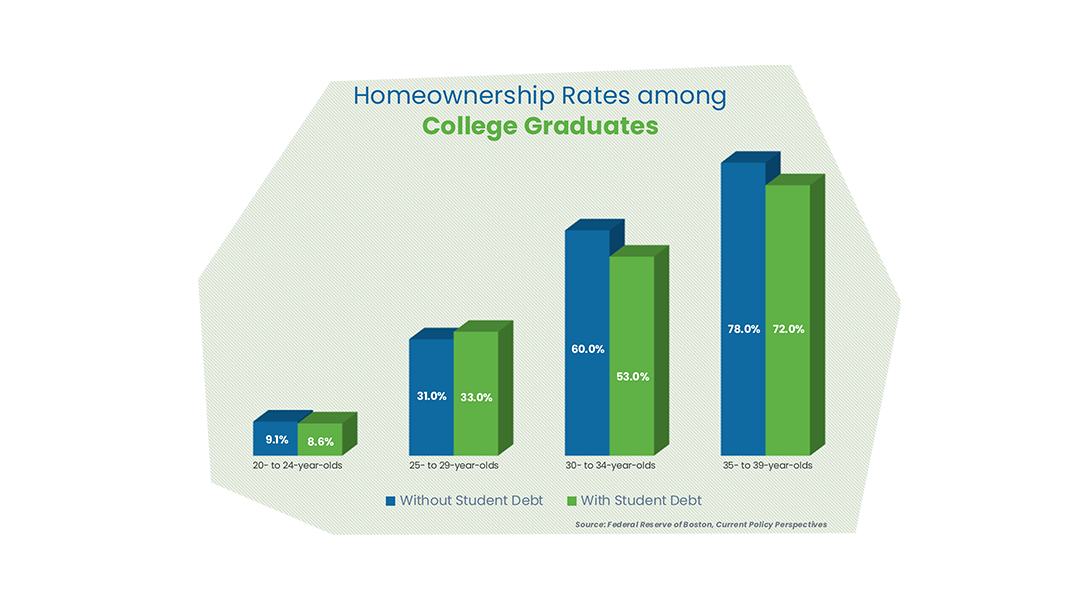Buying a Home with Student Loan Debt
Many Americans, emerging into the workforce with an average of nearly $40,000 of
student loan debt, find themselves spinning their wheels and going nowhere fast. Paying for
education is such a monumental task that other major life purchases: cars, houses, even having
children, are postponed.
The Education Data Initiative found a 5.8% decline in homeownership between 2005
and 2014. In that same period, the rate of homeownership among recent graduates ages 24 to 32,
fell 20.0%. Meanwhile, student loan debt doubled among the same demographic. Experts
attribute up to 20% of the decline in homeownership in the 24 to 32 year-old age bracket to
drastically increased student loan debt.
For every $1,000 increase in student loan debt, homeownership among young college
graduates (ages 35 and under) drops an average of 1.8%. Two large barriers to homeownership
arise for individuals paying off student debt: High Debt to Income Ratios (DTI) and Low
Credit Scores disqualify many Borrowers from mortgages. Moreover, 47% of Borrowers say
their debt prevented them from affording a down payment on a home. Affording a down
payment is an obvious issue, and buying a home without taking out a mortgage is completely out
of the question for the average would-be homeowner.
I. DEBT TO INCOME RATIO
The U.S. Consumer Finance Protection Bureau suggests that a 36% or lower DTI is
optimal to qualify for competitive mortgages, with the upper limit to qualify being 43%. For
young adults paying off student loans, this is often not achievable. 45% of Borrowers say their
high DTI prevented them from qualifying for a mortgage.
II. CREDIT SCORE
Credit scores can be seriously impacted by student loan debt. High amounts of debt lower
scores, as does missing a payment or defaulting. On the other hand, on-time payments can
improve scores.

- 72% of Borrowers believed their debt would delay their home purchasing
- 33% of people who have or had student loan debt & make less than $50,000/year say
student loan debt affected their decision to purchase a home. - 33% of people who have or had student loan debt & make under $50,000/ year say
student loan debt prevented them from buying a home
If you are like many Americans grappling with student debt, you have options. Borrowers
with student loan debt are more likely to qualify for federally backed loans than conventional
mortgages taken out from banks, credit unions, etc. These include a few varieties, like:
- FHA loans
- USDA home loans
- VA loans
III. FHA HOME LOANS
Home loans through the Federal Housing Administration typically accept DTIs up to
50% and Credit scores of 580 for a 3.5% down or as low as 500 with a 10% down. FHA loans
are granted by private lenders but backed by the federal government to help lower-income
Americans buy homes. Sometimes the buyer can also use grants for their down payment.
IV. USDA HOME LOANS
The U.S. Department of Agriculture offers mortgages to low-income Buyers in rural
areas who do not qualify for conventional loans. USDA loans are either insured by the
department and granted through private Lenders or granted directly from the government.
In both cases, Borrowers pay 0% down and pay a fixed interest rate for at least 30 years.
The program accepts Borrowers with up to a 41% DTI (or higher in some extenuating
circumstances) and no minimum credit score.
V. VA LOANS
Veterans, active service members, and their spouses are eligible for a home loan through
the Department of Veterans Affairs. VA loans can be used to build or renovate homes or finance
up to 100% of the purchase of a new home. Borrowers are eligible for a 0% down and there are
no strict credit minimums to qualify.
VI. OTHER ASSISTANCE PROGRAMS
Federal and state legislatures have enacted several programs in an attempt to assist
graduates with debt in buying homes. Most notably, the Federal Transforming Student Debt to
Home Equity Act of 2022 gives homebuyers with student debt perks including mortgages at
lower rates and financial assistance for down payments. In states like Maryland, Rhode Island,
and Ohio, grant programs have been established to assist buyers by contributing to a down
payment and even assisting with existing student debt.
Perhaps the easiest way to work toward homeownership is to organize your student debt
before taking on additional loans on a home. Loan consolidation and refinance are feasible
options to tackle overwhelming student debt. Refinance can even be a tool to increase your credit
and qualify for a more competitive mortgage. In a lot of cases, your best plan of action might be
paying down a portion of student loan debt before considering homeownership.





